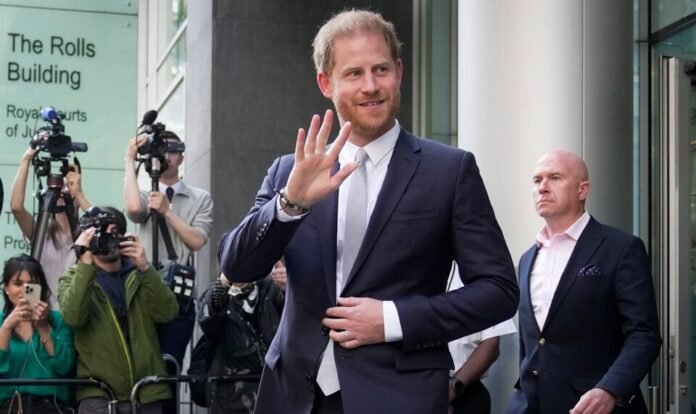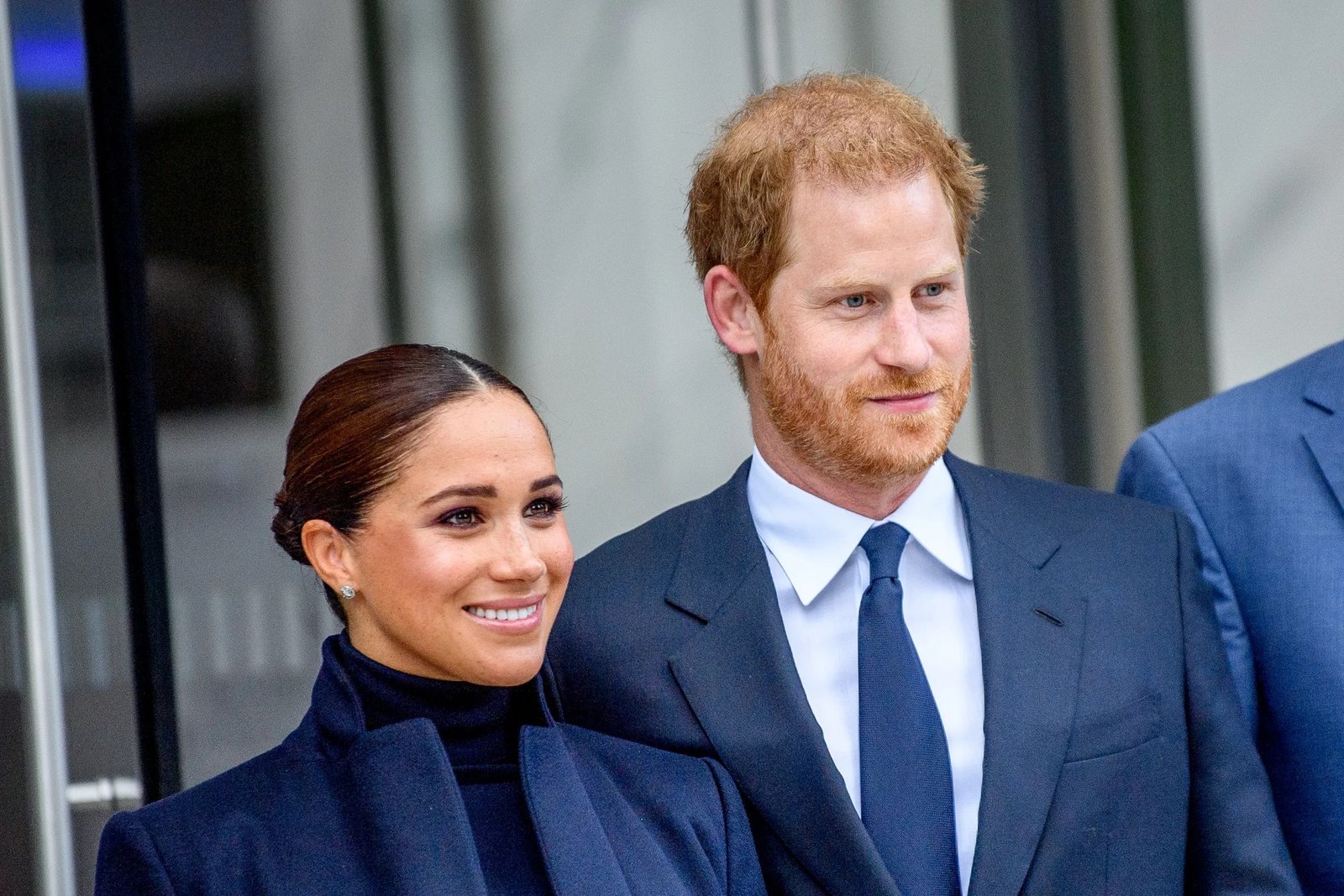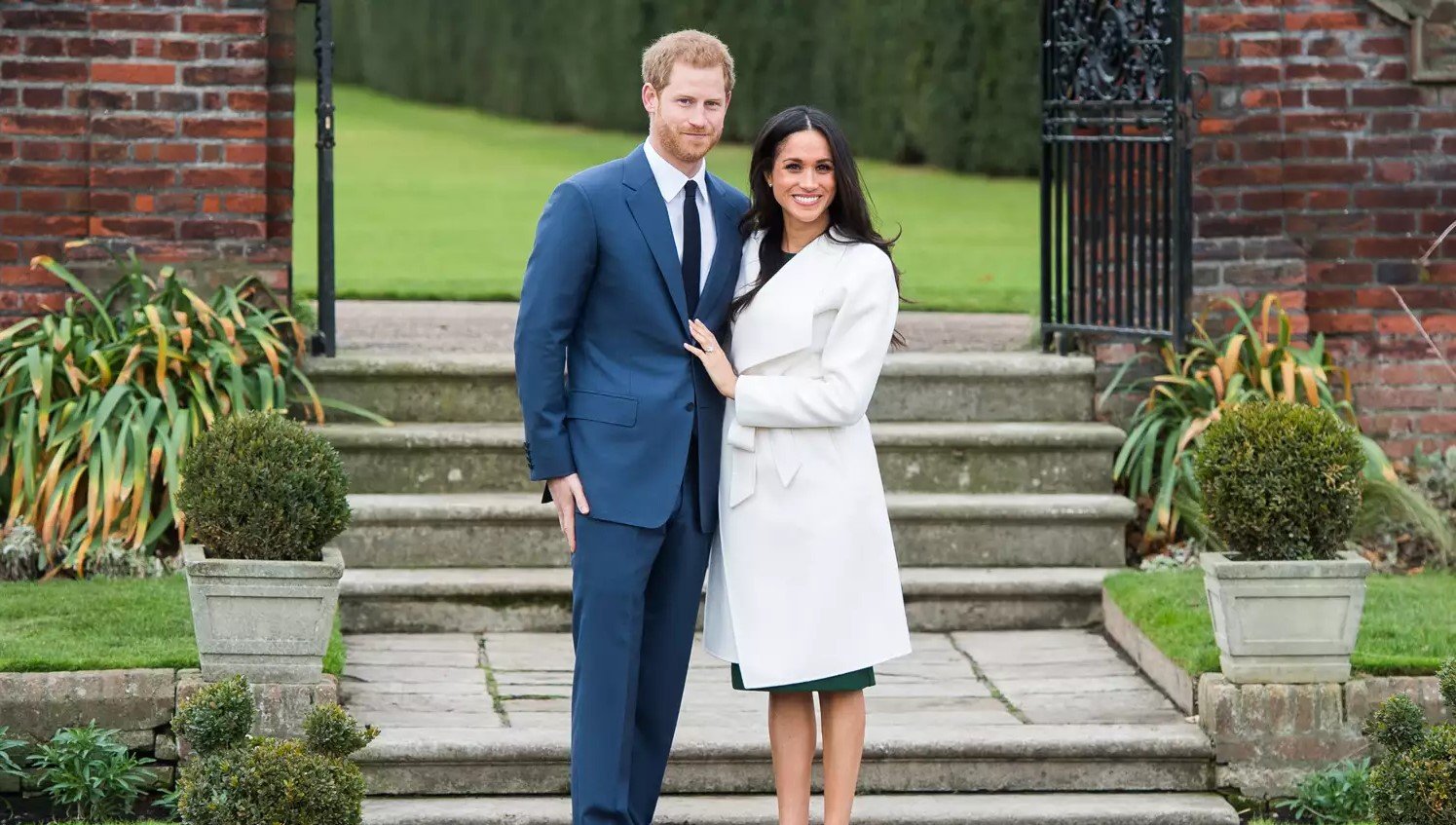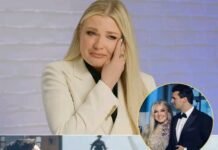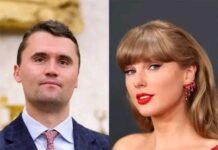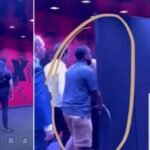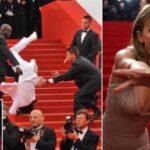Prince Harry has been accused of “bragging and encouraging illegal drug use” in the latest court filing calling for the Duke’s US visa application to be released. In his controversial memoir, Spare, The Duke of Sussex described taking cocaine, marijuana and psychedelic mushrooms, saying “psychedelics did me some good”.
Following its publication, think tank the Heritage Foundation sued the Department of Homeland Security (DHS), questioning why the Duke was allowed into the US in 2020, and why he had been allowed to stay. The Biden administration has pushed back, with lawyers arguing visa applications are “private personal information”. But the Heritage Foundation has said the former royal waived his right to privacy when he “sold every aspect of his private life for, in some estimates, over $135 million”, adding that his claims of his right to privacy have been “met with widespread public ridicule”. In a court filing, the think tank claims the Duke had “voluntarily – and for immense profit – admitted in writing to the elements of any number of controlled substance violations. (Indeed, some say HRH has approached the point of bragging and encouraging illegal drug use.)” Adverse immigration consequences, They said he had made the revelations “despite the fact that it is widely known that such admissions can have adverse immigration consequences for non-citizens and despite employing preeminent legal advisers on both sides of the Atlantic.”
The “case is further bespoke in that HRH—again for immense profit—detailed his immigration decisions and manner of entry in writing and via Netflix video”, they added, Newsweek reported. The think tank said the Duke’s status as a public figure “significantly reduces his privacy interests”. “The Duke of Sussex must take the good with the bad. Having sold all manner of private matters for profit—including specific details on his taking up residence in the United States and every detail of his years of illegal drug use to the point of braggadocio—HRH must accept a substantially diminished privacy interest,” the filing adds. It had previously been suggested in expert witness submission that the Duke may have been granted a diplomatic visa, which would have allowed him access to the US without answering the drug questionnaire. The State Department has not confirmed whether this is the case, with an official saying the department “does not comment publicly on a foreign mission’s accredited personnel”.
